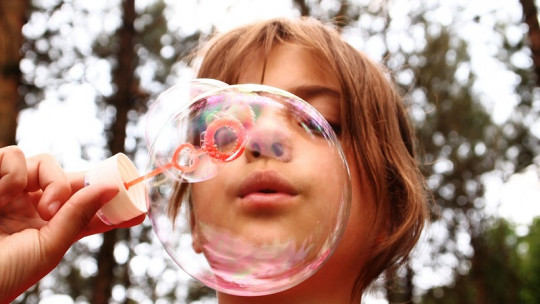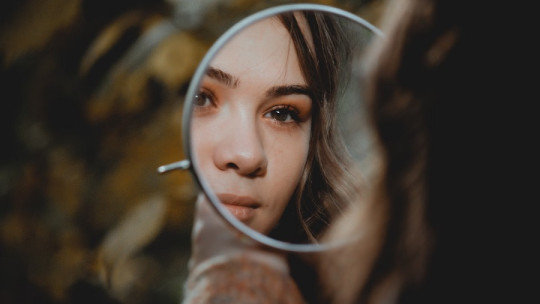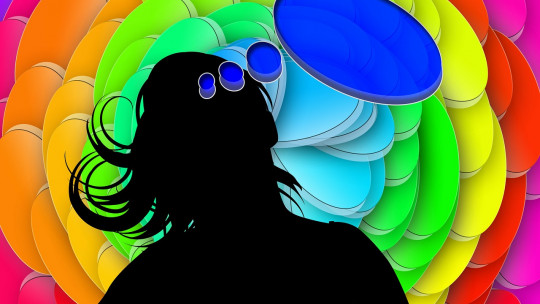We live in a world that seems to be more open to singularity and uniqueness than ever before. However, we continue to debate internally because we don’t know whether to show who we truly are or what we really feel and think in the deepest part of our being. Social media has exacerbated our ancestral need to be accepted, making us dependent on external validation and compromising our genuine expression.
Society and culture have imposed images of how we should look, sound and behave to be “popular”, “successful” or even that rare species that pretends to be “beyond it all.” This pressure often leads us to erect a façade of achievement that can relegate our authenticity to the background, leaving us less eager than ever to express our most authentic selves.
Our deep fear of being judged can lead us to hide aspects of our true selves that are inherently distinctive and exceptional. We can end up overlooking our talents, gifts and abilities. That is why it is important to recover our most emphatic truth and power.
In the depths of being, we will find not only our hidden struggles but also our inner brilliance: our radiant side where strengths live and untapped potential lie in the light of self-discovery. Within us there is a place where we can experience safety in our own skin.
Three most common limiting beliefs
So what stops us from being ourselves? Let’s explore three common limiting beliefs that prevent our authentic selves from emerging, while revealing overcoming approaches to freeing ourselves from these chains.
1. Fear of rejection
The fear of rejection is deeply rooted in our human need for love, connection, and acceptance. The belief that revealing our true selves will lead to criticism, judgment, or abandonment can be overwhelming. This fear manifests as a defense mechanism, forcing us to wear masks that align with external expectations instead of expressing our most genuine thoughts, emotions, and spirit.
2. Fear of not being enough
The fear of not meeting the expected standard or of not having the same success as others can make us feel inadequate and prone to hide. This limiting belief encourages the idea that our true selves are not worth it or that we are broken, fueling a cycle of insecurity and doubt. This fear usually leads to the habit of comparing ourselves with others, paving the way for us to feel inferior and undeserving of what happens to us.
3. Fear of reliving pain rooted in childhood
Those of us who have gone through negative experiences in childhood usually create survival mechanisms to cope with those experiences. This can include unconscious patterns that pull us back when it comes to self-expression for fear of experiencing more pain and disappointment. Having had to endure criticism, rejection and/or abandonment as children, we learned not to show our vulnerability. Although as adults we no longer experience these circumstances, we are surrounded by the belief that showing ourselves as we are puts us in danger.

Five ways the fear of being authentic manifests itself
It is especially expressed in the following ways:
1. Self-censorship
We filter our thoughts, emotions, and behaviors, retaining aspects of our true selves to fit the parameters imposed by society. This self-suppression can lead to a diminished sense of identity and an ever-simmering sense of internal conflict.
2. Social anxiety and isolation
We avoid social situations entirely or experience intense discomfort when interacting with others. This fear-induced isolation can perpetuate a cycle of loneliness and reinforce the belief that authentic self-expression is synonymous with social risk.
3. Imposter syndrome
We doubt our achievements and feel like frauds for having gotten to where we are even when the evidence shows us otherwise. The fear of being exposed as inadequate or unworthy can undermine our self-confidence and hinder our personal and professional success.
4. Perfectionism
We strive for an unhealthy degree of perfection to gain external validation and acceptance. This constant search for perfection can become an exhausting cycle, reinforcing the fear that any deviation from our idealized ideas can lead to rejection.
5. Symptoms related to stress
This can include headaches, gastrointestinal problems, and sleep disorders. The body’s physiological response to constant stress can contribute to long-term and/or chronic illness if not addressed.

Five Liberating Approaches to Overcoming Limiting Beliefs
Through:
1. Self-pity
Self-compassion understands that we all face moments of doubt and that imperfections are a natural part of being human. This also teaches us to develop a kinder attitude towards ourselves. Self-compassion allows for a shift in focus from seeking our validation externally to nurturing internal acceptance and fostering the value of being one’s authentic self.
2. Mindfulness
By cultivating present moment awareness, we can learn to appreciate our unique qualities and experiences without the burden of constantly comparing ourselves to others. Mindfulness empowers us to reconnect with our authentic selves, creating a sense of inner peace and acceptance.
3. Writing in a journal
It is a safe space to explore and express our true selves without fear of judgment. Allow yourself to unravel your thoughts, fears and desires, encouraging self-awareness and acceptance. Through this process, we can gradually build confidence to embrace and show our authentic identity to the world.
4. Challenge negative thoughts
With the help of a coach, we can learn to recognize irrational thoughts and how to replace them with more empowering and realistic alternatives. With the right guidance, we can first gain insight into the origin of our limiting beliefs and then develop strategies to reframe those beliefs and have a more authentic existence.
5. Gratitude Mindset
Gratitude is a great antidote to fear. Changing our emotional focus allows our confidence to manifest. When we feel gratitude in our hearts, we see infinite possibilities for a more enriching and satisfying experience.
Conclusions
The journey towards authenticity is a gradual process. Every small step towards self-discovery and self-expression is a triumph on our path. To be our authentic selves, we need to let go of external expectations and seeking approval. Instead, we must honor our unique journey and embrace the inherent value of being ourselves. To achieve that goal, we must be determined to face and challenge our limiting beliefs. In the words of Swiss psychiatrist and psychoanalyst Carl Jung, “The privilege of a lifetime is to become who you really are.”.










